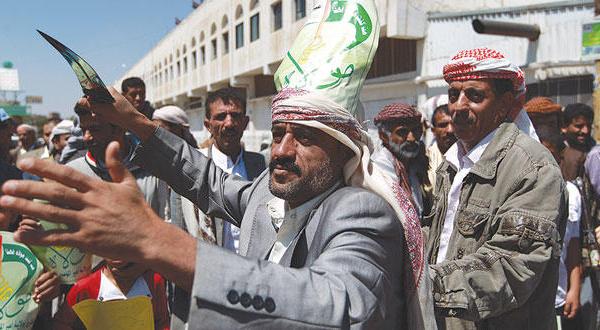Iran faces an uphill battle in Yemen
Tariq Alhomayed/Asharq Al Awsat
Tuesday, 17 Feb, 2015
The Yemeni crisis has reached a critical moment of truth. The Gulf and the international community have both declared their opposition to the Houthi coup, with these stances resulting in the subsequent closure of several foreign embassies in Sana’a, leaving the Houthi coup without international cover bar Iran’s support. By “critical” above I mean that five regions in Yemen oppose the Houthis coup, with the remaining one accepting it only partially through coercion, oppression and violence.
Well, what is the mood in the Gulf right now, particularly since it is the party that is now communicating with the international community and explaining what should be done in Yemen? According to reports I have personally heard from several well-informed Gulf sources, the Gulf Cooperation Council (GCC)—which launched the main initiative that led to Ali Abdullah Saleh’s departure from power in 2012—has resolved its position on the issue and will not tolerate any laxity here. “Yemen has changed, and we have to think in a different way devoid of emotions,” one source said.
According to another source, what happened in Yemen was “a full-fledged coup and will not be accepted by the international community or neighboring countries.”“No country keen about its security can accept the presence of a militia armed with weapons coming from countries with whom it shares its borders,” the source added.
“The Houthi coup and efforts to legitimize it provide a recipe for a sectarian civil war. No peaceful solution can be reached without things returning to normal, and weapons, particularly the medium and heavy ones, being returned to the state, as well as dialogue being resumed,” he said.Of course, the Gulf’s view of this dialogue has changed drastically. Gulf states are seeking genuine dialogue with guarantees, particularly since the Houthis, according to the source, previously signed “more than 65 agreements without complying with any of them, instead using these agreements as a way to catch their breath before continuing their march towards the other regions.”
As such, GCC countries believe the next agreement, if it ever takes place, will, naturally enough, differ from the previous ones. This is a natural result, particularly after Iran’s involvement in the Houthi coup became apparent to everyone. It was therefore remarkable that this week’s UN resolution on Yemen, unanimously adopted by the Security Council, called for an end to foreign intervention in the country—by Iran of course.
So, in case a future agreement on Yemen is reached, will the Gulf again fall victim to Saleh and the Houthis’ machinations? And how will Iran be dealt with? What I heard was remarkable: reports suggest that Saleh and the Houthis have sent several messages, all with the same content: “Rest assured.” Another Gulf source told me: “We are confident and reassured as to our ability to maintain our security and [protect] our borders, and the ones who should be sent messages of assurance are the Yemeni people, from across the spectrum. The Yemenis are fed up with Saleh’s ploys and the Houthis’ treachery.”
But it was what one source said about Iran that particularly stood out: “Those who think that the bisht of Qom can protect against the Yemeni thorns should reassess their calculations quickly.”The bisht, a cloak worn by clerics from the Iranian city of Qom, indeed cannot protect Iran from the pricks of the Yemeni thorns. And we should not forget either that Tehran is yet to get a taste of the Yemeni dagger.






















